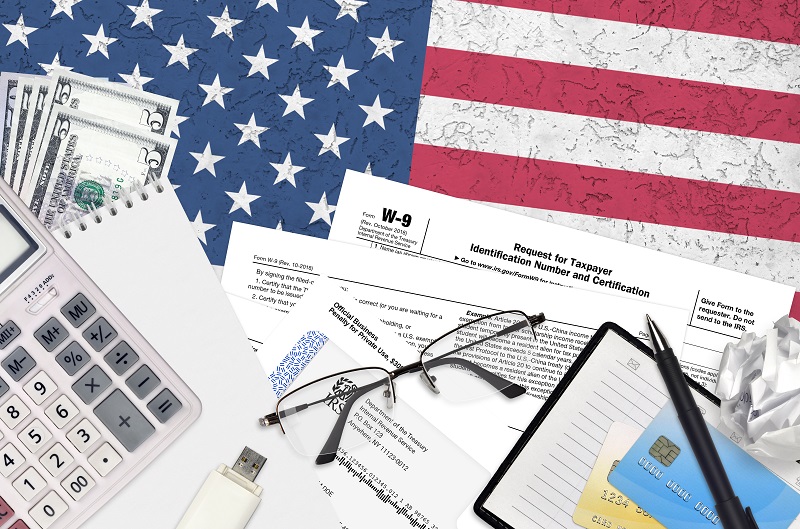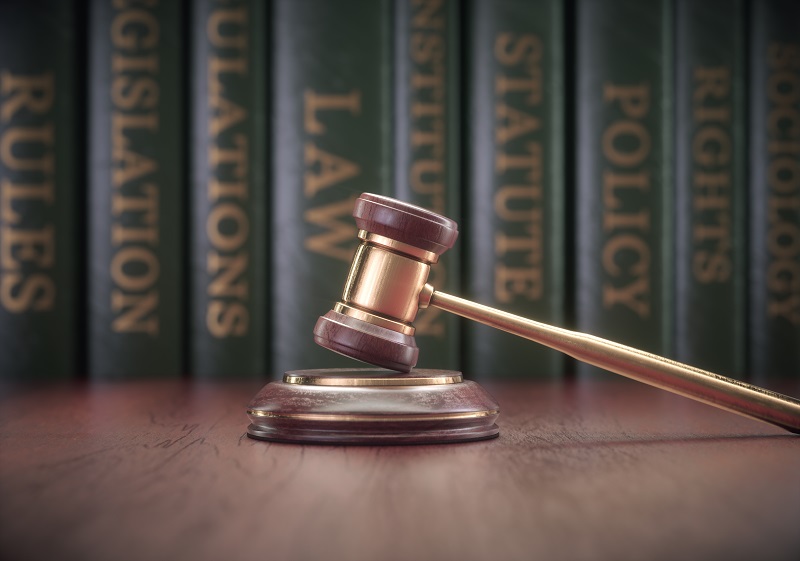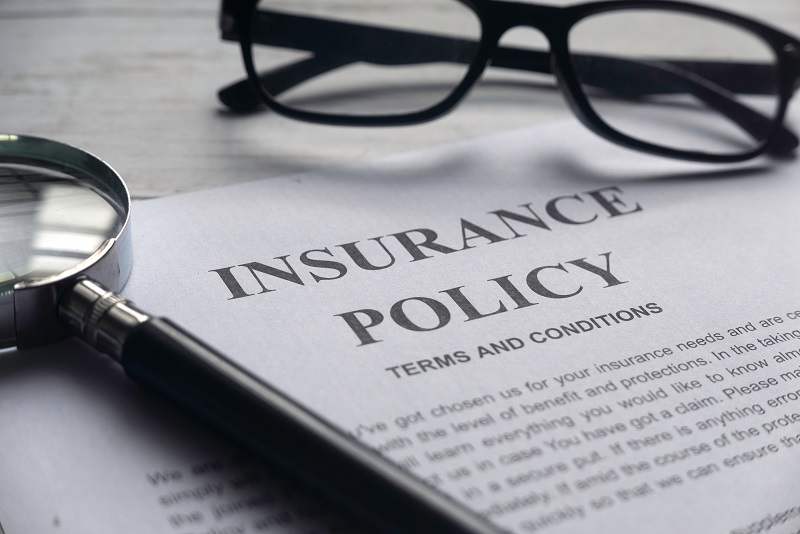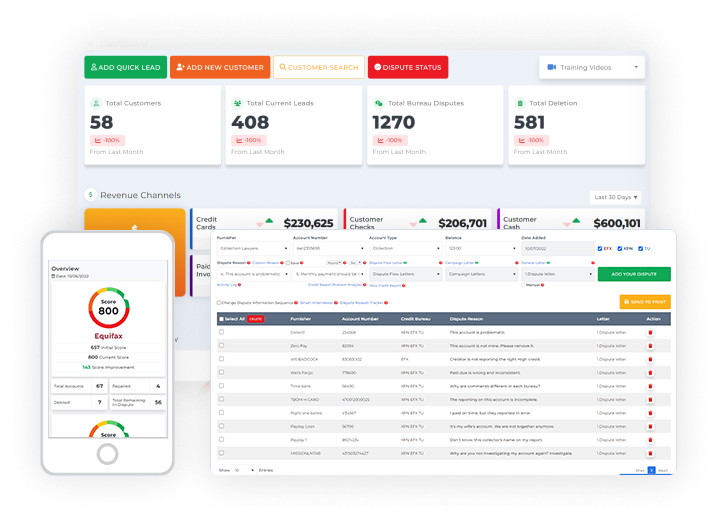If you’re considering starting a credit repair business in Georgia, it’s important to stay compliant with the state’s laws and regulations. This blog will provide an in-depth look at the legal requirements for credit repair businesses in Georgia, helping you launch your business with confidence.
Business Formation

Formally establish your business by registering it with the Georgia Secretary of State. You can choose a business structure such as a Sole Proprietorship, Limited Liability Company (LLC), Corporation, or Partnership.
Sole Proprietorship:
This is the simplest business structure, where you are the sole owner and operator of your credit repair business. There is no legal distinction between you and your business, meaning you are personally liable for all debts and obligations.
Limited Liability Company (LLC):
An LLC is a popular choice for small businesses because it provides limited liability protection for its owners, also known as members. This means that the members are generally not personally liable for the company’s debts and obligations. LLCs are easy to set up and maintain, with a flexible management structure and pass-through taxation.
Corporation:
A corporation is a separate legal entity from its owners, also known as shareholders. Corporations offer limited liability protection and are subject to double taxation (corporate income is taxed, and dividends paid to shareholders are taxed again on their personal income tax returns). There are different types of corporations, including S corporations and C corporations.
Partnership:
A partnership is a business entity where two or more individuals share ownership and management responsibilities. There are different types of partnerships, such as General Partnerships (GP), Limited Partnerships (LP), and Limited Liability Partnerships (LLP). Partnerships offer pass-through taxation but have varying degrees of liability protection depending on the partnership type.
Obtain an Employer Identification Number (EIN)

Apply for an EIN from the Internal Revenue Service (IRS) for tax purposes.
- Check Your Eligibility: To apply for an EIN, you must have a valid Social Security Number (SSN) or Individual Taxpayer Identification Number (ITIN). The person applying for the EIN must be a responsible party for the business, such as the owner or a principal officer.
- Online Application: The easiest and quickest way to apply for an EIN is through the IRS website. The online application is available from Monday through Friday, 7 a.m. to 10 p.m. Eastern Time. To apply, visit the IRS EIN Assistant.
- Fill Out the Application: You will need to provide information about your business, such as its legal name, physical address, mailing address, and the responsible party’s SSN or ITIN. You will also be asked to describe your business activities and the reason for applying for an EIN.
- Submit the Application: Once you have completed the online application, you can submit it electronically. If your application is complete and valid, you will receive your EIN immediately.
- Print and Save the Confirmation: After receiving your EIN, be sure to print and save the confirmation notice for your records.
If you prefer not to apply online or cannot access the online application, you can apply for an EIN by mail or fax:
- Mail: Download and complete Form SS-4 (Application for Employer Identification Number) from the IRS website. Mail the completed form to the appropriate address listed on the form’s instructions.
- Fax: Fax the completed Form SS-4 to the appropriate fax number listed on the form’s instructions. If your application is complete and valid, you will receive your EIN by fax within four business days.
Please note that the IRS no longer processes EIN applications over the phone, and the online application is the preferred method for most businesses.
Create A Business Plan

Develop a detailed business plan outlining your target market, services, marketing strategies, and financial projections.
1. Executive Summary:
Provide a brief overview of your credit repair business, including its mission, vision, and objectives. This section should also summarize your company’s structure, management team, and competitive advantages.
2. Company Description:
Describe your business in detail, including the legal structure (e.g., LLC, corporation), location, and history (if applicable). Explain the credit repair services you plan to offer and the target market you will serve.
3. Market Analysis
Research and analyze the credit repair industry, both nationally and within Georgia. Identify trends, growth potential, and any challenges or risks. Examine your target market, including its size, demographics, and needs. Identify your competitors and analyze their strengths and weaknesses.
4. Marketing and Sales Strategy:
Outline your approach to promoting your credit repair services and attracting clients. This may include online marketing (e.g., website, social media, search engine optimization), offline marketing (e.g., print materials, networking, community events), and referral partnerships (e.g., with real estate agents, mortgage brokers, or financial planners).
Detail your sales process and customer acquisition strategies.
5. Operation:
Describe how you will manage the day-to-day operations of your credit repair business, including staffing, client intake, case management, dispute resolution, and reporting. Address any software or technology you will use to streamline your operations and ensure compliance with industry regulations.
6. Legal and Regulatory Compliance:
Detail the steps you will take to comply with federal and Georgia state laws governing credit repair, including the Credit Repair Organizations Act (CROA) and Georgia’s Fair Business Practices Act (FBPA).
7. Financial Projections:
Provide a financial forecast for your credit repair business, including projected revenue, expenses, and profit. This section should include a break-even analysis, profit and loss projections, cash flow forecasts, and balance sheets for at least three years.
8. Funding Requirements:
If you plan to seek external funding, outline the amount of funding you need, how you will use the funds, and the type of funding you are seeking (e.g., loans, grants, equity investments).
9. Exit Strategy:
Describe your long-term plans for your credit repair business, such as selling the business, merging with another company, or passing it on to a successor.
10. Appendix:
Include any additional documents, such as resumes of key team members, market research data, or sample marketing materials.
Remember, an effective business plan is a living document that should be regularly reviewed and updated as your credit repair business grows and evolves.
Federal Compliance

Comply with the Credit Repair Organizations Act (CROA), which prohibits credit repair companies from making false claims or engaging in fraudulent practices. You must provide clients with a written contract, a three-day right to cancel.
- Written Contracts: Credit repair companies must provide clients with a written contract that outlines the services to be performed, the total cost of the services, the duration of the service, any guarantees, and the client’s right to cancel the contract.
- Right to Cancel: Clients have the right to cancel a credit repair contract within three days of signing without incurring any charges. Credit repair businesses must clearly inform clients of this right in the written contract.
- Prohibition of False Claims: Credit repair companies are prohibited from making false or misleading statements about their services or the potential results they can achieve. This includes claiming to be able to remove accurate information from credit reports or guaranteeing specific improvements in credit scores.
- No Advance Fees: Credit repair companies cannot charge or collect fees for their services until they have completed the agreed-upon services. This means that requesting payment before providing the service is prohibited.
- Required Disclosures: Credit repair businesses must provide clients with a separate written notice, titled “Consumer Credit File Rights Under State and Federal Law,” which informs clients of their rights under the CROA and any applicable state laws.
In addition to the CROA, credit repair businesses should also be aware of and comply with other federal laws and regulations, including:
- The Fair Credit Reporting Act (FCRA): The FCRA governs the collection, use, and reporting of consumer credit information, and credit repair businesses must ensure they are following its provisions when accessing and disputing information on clients’ credit reports.
- The Federal Trade Commission (FTC) Regulations: The FTC enforces consumer protection laws and regulations, including those related to advertising, telemarketing, and data privacy. Credit repair businesses must ensure their marketing and business practices comply with the FTC’s guidelines.
Georgia State Regulations

Be aware of and comply with Georgia’s Fair Business Practices Act (FBPA), which prohibits deceptive or unfair practices in consumer transactions, including credit repair services.
One of the primary state regulations to be aware of is the Georgia Fair Business Practices Act (FBPA).
The FBPA is a consumer protection law that prohibits deceptive or unfair practices in consumer transactions. While the FBPA does not specifically target credit repair businesses, it applies to any business that provides goods or services to consumers in Georgia. Key provisions of the FBPA that may be relevant to credit repair businesses include:
- Prohibition of Deceptive Practices: The FBPA prohibits businesses from engaging in false, misleading, or deceptive practices in their marketing or sales efforts. This includes making false claims about the potential results of credit repair services or the qualifications of the business.
- Required Disclosures: Businesses must provide consumers with accurate and clear information about the terms and conditions of their services, including payment terms, and any guarantees or warranties.
- Cancellation Rights: While the CROA grants consumers a three-day right to cancel a credit repair contract without penalty, Georgia state law may have additional cancellation rights for consumers. It’s important to familiarize yourself with these rights and include them in your contracts and disclosures.
- Enforcement: The Georgia Department of Law’s Consumer Protection Division enforces the FBPA and investigates complaints against businesses for alleged violations. Penalties for violating the FBPA can include fines, injunctions, and restitution to affected consumers.
Surety Bond

Some states may require credit repair businesses to obtain a surety bond to protect clients against fraud or misconduct. Check with the Georgia Department of Law’s Consumer Protection Division to see if this applies to you.
Georgia does not specifically require a surety bond for credit repair businesses. However, requirements may change, and local or industry-specific regulations might apply. It’s crucial to consult with a legal or business professional familiar with Georgia’s laws and regulations to ensure you are up-to-date on any surety bond requirements.
A surety bond is a financial guarantee that protects your clients against financial loss due to fraud, misconduct, or failure to perform the agreed-upon services by your credit repair business. In some states, credit repair businesses are required to obtain a surety bond as part of their licensing or registration process.
Even if a surety bond is not specifically required in Georgia, obtaining one could enhance your business’s credibility and provide an added level of protection for your clients.
To obtain a surety bond, you can work with a surety bond agency or broker.
The cost of the bond will depend on various factors, including the bond amount, your business’s financial health, and your personal credit history.
Local Permits And Licenses

Depending on your location, you may need to obtain local permits or licenses, such as a business license, zoning approval, or a home occupation permit.
Business License:
Most cities or counties in Georgia require businesses to obtain a local business license or permit to operate legally within their jurisdiction. Check with your local city or county government office to determine the specific requirements and application process.
Occupational Tax Certificate:
Some jurisdictions in Georgia may require businesses to obtain an Occupational Tax Certificate, also known as a business tax receipt or business license tax. This certificate allows your business to operate within the jurisdiction and may be based on your business’s gross revenue or the number of employees.
Home Occupation Permit:
If you plan to operate your credit repair business from a residential location, you may need to obtain a Home Occupation Permit from your local zoning department. This permit ensures that your business complies with local zoning ordinances and does not negatively impact the surrounding residential area.
Professional Licenses:
While credit repair businesses in Georgia do not require a specific professional license, you should ensure that you and your staff comply with any licensing or certification requirements for related fields, such as financial planning or credit counseling.
Signage Permit:
If you plan to display signage for your credit repair business, you may need to obtain a signage permit from your local zoning department to ensure your signs comply with local ordinances.
Sales Tax Permit:
If your credit repair business sells any taxable goods or services, you may need to obtain a sales tax permit from the Georgia Department of Revenue.
Open A Business Bank Account

Keep your personal and business finances separate by opening a dedicated business bank account.
Employer Identification Number (EIN):
Most banks will require your business’s EIN, also known as a Federal Tax Identification Number, issued by the IRS. If you are a sole proprietor without employees, you may be able to use your Social Security Number (SSN) instead.
Business Formation Documents:
Depending on your business structure (e.g., LLC, corporation, partnership), you may need to provide your formation documents, such as your Articles of Organization, Articles of Incorporation, or partnership agreement.
Business License or Permit:
Provide a copy of your local business license or permit, as required by your city or county in Georgia.
Occupational Tax Certificate:
If applicable, provide a copy of your Occupational Tax Certificate, also known as a business tax receipt or a business license tax, issued by your local city or county.
Personal Identification:
The bank will require personal identification for all business owners or authorized signers on the account. This typically includes a valid driver’s license, state-issued ID, or passport.
Initial Deposit:
Many banks require an initial deposit to open a business bank account. The minimum deposit amount may vary depending on the bank and the specific type of account you choose.
Operating Agreement or by Laws:
If your business is an LLC or corporation, some banks may require a copy of your operating agreement or bylaws. These documents outline the management structure and rules governing your business.
Professional Liability Insurance

Consider obtaining professional liability insurance to protect your business in case of any claims or lawsuits.
Professional liability insurance, also known as errors and omissions (E&O) insurance, is a type of insurance that protects businesses and professionals against claims of negligence, mistakes, or failure to perform contracted services. This insurance can cover legal defense costs, settlements, and judgments arising from such claims.
For a credit repair business, professional liability insurance can help protect your business from potential financial losses due to disputes with clients or claims of misconduct in handling credit repair services.
While specific requirements and coverage amounts may vary depending on your business’s unique needs, professional liability insurance can provide an additional layer of protection and peace of mind.
When considering professional liability insurance, consider the following:
- Research Insurance Providers: Look for insurance providers that offer professional liability coverage specifically tailored to credit repair businesses. Compare coverage options, policy limits, and premiums to find the best fit for your business.
- Coverage Limits: Determine the appropriate coverage limits for your credit repair business based on factors such as your business’s size, the number of clients you serve, and the potential risks associated with your services.
- Deductible: Consider the deductible amount (the out-of-pocket expense you pay before the insurance coverage kicks in) when selecting a policy. Higher deductibles typically result in lower premiums but can increase your financial responsibility in the event of a claim.
- Policy Exclusions: Review the policy exclusions (situations or circumstances not covered by the insurance) to ensure you understand what is and isn’t covered by the professional liability insurance policy.
- Continuous Coverage: Maintain continuous coverage to ensure protection from potential claims that may arise in the future. Some claims may not surface until years after the alleged incident, and having continuous coverage can help protect your business in such cases.
In addition to professional liability insurance, a credit repair business should consider other types of insurance coverage to protect itself from various risks and potential liabilities. Here are some essential types of insurance coverage to consider for your credit repair business:
General Liability Insurance:
This coverage protects your business against claims of bodily injury, property damage, and personal injury (such as libel or slander) that may occur as a result of your business operations. General liability insurance can cover legal defense costs, settlements, and judgments for covered claims.
Commercial Property Insurance:
If your credit repair business owns or leases a physical location, commercial property insurance can protect your business property, such as office furniture, computers, and equipment, against damage or loss due to events like fire, theft, or natural disasters.
Business Interruption Insurance:
This coverage, often included as part of a commercial property insurance policy, provides financial protection if your credit repair business is unable to operate due to a covered event, such as a fire or natural disaster. Business interruption insurance can help cover lost income and additional expenses, such as temporary relocation costs.
Cyber Liability Insurance:
As a credit repair business, you handle sensitive client information, making you vulnerable to cyber threats and data breaches. Cyber liability insurance can protect your business from financial losses resulting from data breaches, cyberattacks, and other technology-related incidents.
It can cover costs such as legal fees, public relations efforts, and notification and credit monitoring services for affected clients.
Workers' Compensation Insurance:
If your credit repair business has employees, workers’ compensation insurance is generally required by law. This coverage provides benefits to employees who suffer work-related injuries or illnesses, such as medical expenses, lost wages, and rehabilitation costs.
Workers’ compensation insurance also offers some protection to employers by limiting their liability for employee injuries.
Commercial Auto Insurance:
If your credit repair business owns or leases vehicles for business use or if employees use their personal vehicles for business purposes, commercial auto insurance is essential. This coverage protects against liability and property damage resulting from accidents involving business-owned or -operated vehicles.
Educate Yourself

Stay up-to-date on credit repair industry practices, laws, and regulations. Consider joining professional associations, such as the National Association of Credit Services Organizations (NACSO) or the Credit Consultants Association (CCA), to access educational resources and networking opportunities.
Attend Conferences and Workshops:
Industry conferences and workshops are excellent opportunities to learn about the latest trends, best practices, and regulatory updates. They also provide a platform for networking with other professionals in the credit repair industry.
Subscribe To Industry Newsletters and Publications:
Sign up for newsletters and publications related to credit repair, consumer finance, and credit reporting. These resources can help you stay informed about the latest news, changes in regulations, and industry best practices.
Participate In Online Forums and Communities:
Engage in online forums and communities related to the credit repair industry. This can help you learn from other professionals, share your experiences, and stay informed about current issues and trends.
Follow Regulatory Agencies and Organizations:
Keep track of updates and announcements from regulatory agencies such as the Federal Trade Commission (FTC), the Consumer Financial Protection Bureau (CFPB), and state-level agencies. You can subscribe to their newsletters or follow them on social media to receive regular updates.
Take Continuing Education Courses:
Enroll in continuing education courses related to credit repair, consumer finance, or credit reporting. This can help you deepen your knowledge, stay current on industry best practices, and maintain any relevant certifications.
Network With Other Professionals:
Establish relationships with other professionals in the credit repair industry, including those in related fields such as credit counseling, debt settlement, and financial planning. Networking can help you exchange information, ideas, and best practices.
Consult With Legal and Compliance Experts:
Ready to start your credit repair business in Georgia?
Make sure you are informed and compliant with the latest state laws.
Click now to learn more.
Work with legal and compliance professionals who specialize in the credit repair industry to ensure your business remains up-to-date on any changes in laws or regulations. This can also help you identify potential risks and implement best practices for compliance.
Bonus: Now that you have read this article, why not take your new skill and start your own credit business helping others? We have free training that can help you do just that.


